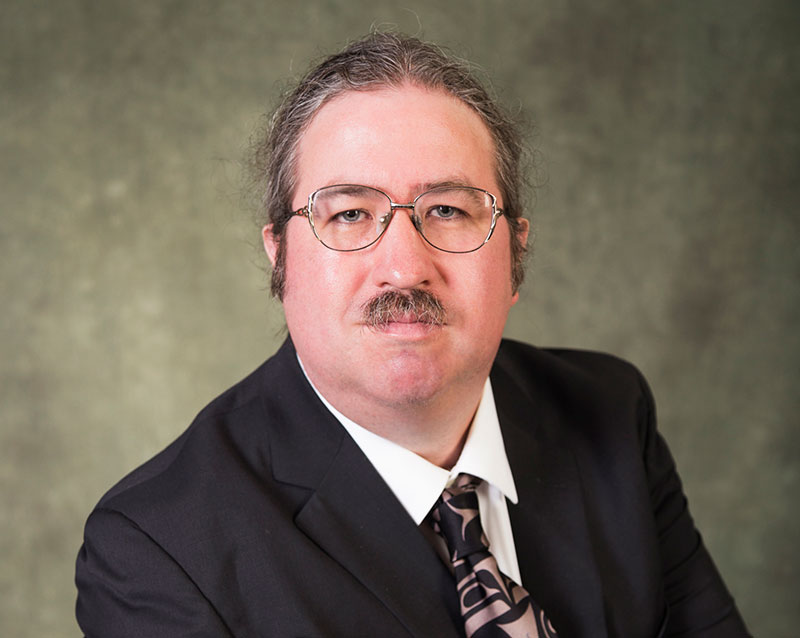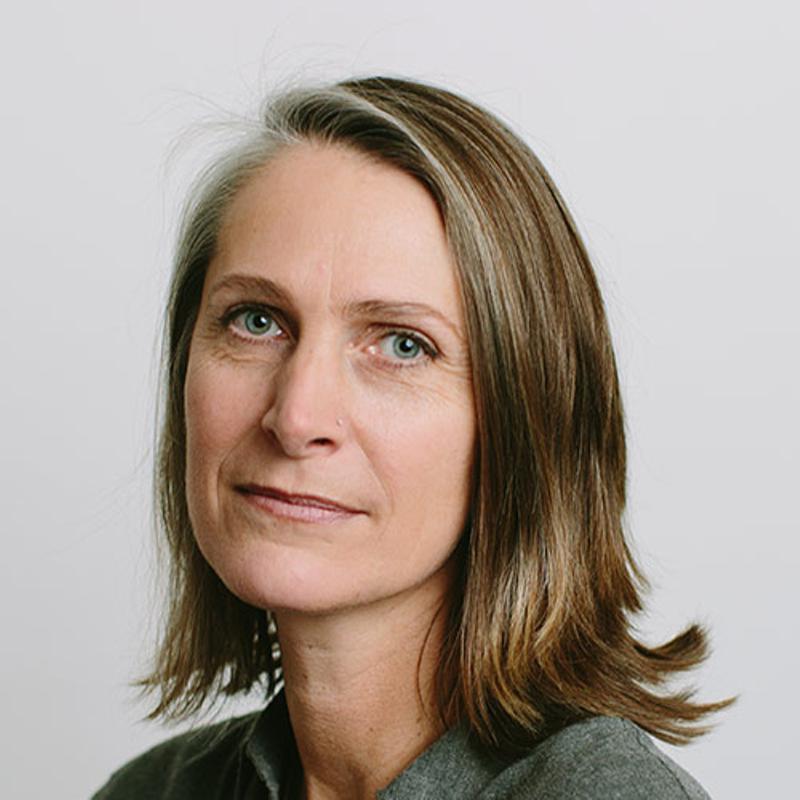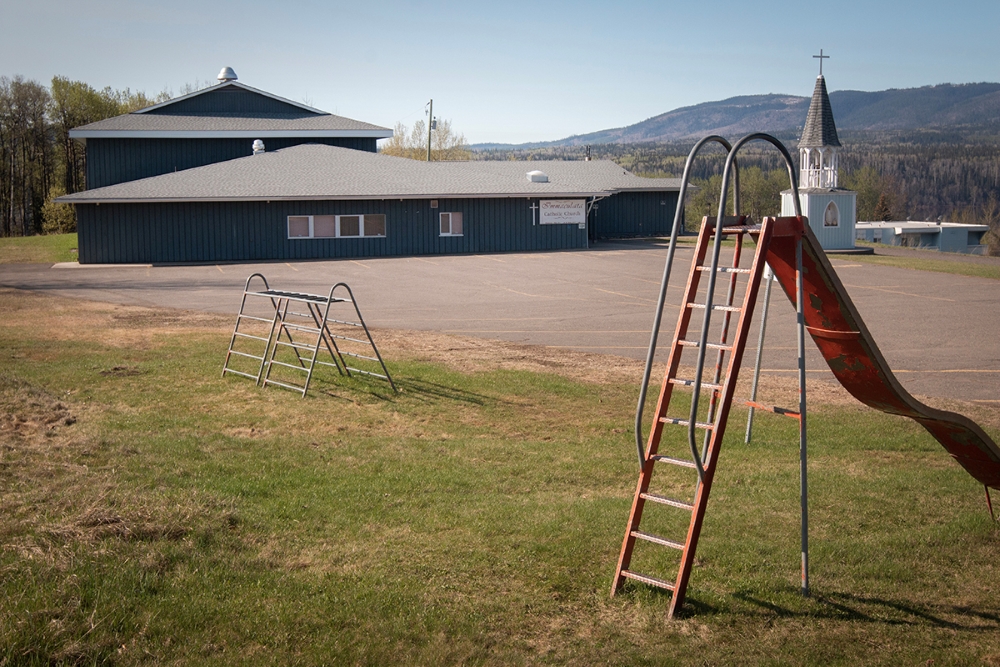An expert witness testifying Tuesday at the Canadian Human Rights Tribunal hearing into the RCMP’s investigation of historic abuse at two northern B.C. schools said it’s likely investigating officers were aware of Indigenous communities’ distrust of Canada’s police force.
“RCMP, on an organizational level, was aware that there were problems in the northern [B.C.] Interior,” David Milward told the tribunal. “I don’t see how they couldn’t have known.”
Milward, a law professor at the University of Victoria who recently authored the book Reconciliation and Indigenous Justice: A Search for Ways Forward was allowed to testify despite opposition by RCMP lawyers who argued that he was prejudiced and that evidence he presented was beyond the scope of the tribunal hearing.
In a March ruling, tribunal Chair Colleen Harrington disagreed with Department of Justice lawyers, who are representing the RCMP, saying that just because the report “presents information that the RCMP may disagree with does not necessarily make it prejudicial.”
“I concluded that Dr. Milward’s report is relevant to the issue of whether the RCMP knew or ought to have known of the distrust held for the RCMP by Indigenous peoples in northern B.C. at the time it conducted its investigation,” Harrington said Tuesday.
She added that Milward’s report to the tribunal, which was completed on behalf of six First Nations complainants and drew from several reports examining the force’s relationship with Indigenous communities, is necessary to “fully appreciate the social context underlying the complaint being the historical and ongoing relationship between the RCMP and Indigenous peoples in Canada, including in northern B.C.”
The inquiry began May 1, with the first two weeks of testimony taking place in-person in Burns Lake. It resumed online Tuesday.
The complainants say the RCMP discriminated against them when it investigated a historical complaint of sexual abuse at Immaculata Elementary School in Burns Lake in 2012.
Police said they could not corroborate the allegation of sexual abuse and found insufficient grounds for charges. The Tyee cannot name the person at the centre of the allegations, who taught at the school, because of a publication ban on his identity. He is referred to in official tribunal documents as A.B.
During the first two weeks of testimony, witnesses described a lifetime of experiences that had eroded their trust in authority figures. They spoke about children taken away by social workers and parents picked up by police, while their own reports to the police were ignored. One witness described being taken away to residential school by RCMP after his mother died.
“The police came up to the house and they put us in the vehicle and they drove us away,” he testified. “I thought I did something terribly wrong.”
“There seems to be a law for the white people and then there’s a law for the Native people,” another testified. As a result, most said that they never considered reporting their abuse.

Milward’s report to the tribunal, dated Oct. 29, 2021, looked into distrust of the RCMP by Indigenous people in Canada. It drew from several reports, including the RCMP’s own 2011 report about its role in Indian Residential Schools, the findings of the Truth and Reconciliation Commission, the final report of the National Inquiry into Missing and Murdered Indigenous Women and Girls, and a report by Human Rights Watch into policing along the Highway of Tears.
While some of these reports were available prior to the RCMP’s investigation of the historical abuses in Burns Lake, which concluded in 2013, others were still in progress at that time, the tribunal heard.
Milward’s testimony went back to the late 1800s and the North West Mounted Police, the forerunner to the RCMP, which asserted territorial sovereignty over what is now Western Canada, he said. It referenced the historical enforcement of potlatch bans by Canada’s police force and the RCMP’s role in enforcing the Indian Act.
“Also, there’s people’s view of the RCMP as acting in partnership with the residential schools, both to bring Indigenous children to the residential schools, but also to search for Indigenous children who ran away or went back home for holidays and did not return,” Milward said.
He described Indigenous communities’ willingness to report historical abuse at residential schools as “somewhat complex.” While some former students did attempt to make reports to RCMP and were dismissed, he said in other cases there were perceptions that stood in the way of reporting abuse — such as the belief that RCMP were “kind of a military arm or enforcement arm of residential schools.”
“They didn’t understand that RCMP have the power to investigate the residential school staff for wrongdoing,” Milward said.
He described the perception of discrimination as a barrier between Indigenous communities and the RCMP in northern B.C.
“When it comes to Indigenous protests, for example, like the Wet’suwet’en land defenders, the Mi’kmaq, when the RCMP take certain actions, they are going to make that association between past RCMP conduct, like asserting Canadian sovereignty over the west, and what the RCMP is doing in the present day, like forceful breaking up of land defender camps,” he said.
Milward also described “victim blaming” during investigations into missing Indigenous women by RCMP officers that included a lack of understanding about the complexities of leaving an abusive partner or dismissing family concerns because of racial stereotypes, such as suggesting a missing loved one was just out partying. At times in MMIWG2S cases, he said, it took the RCMP up to a month to initiate an investigation.
“It’s certainly not my intention to cast all officers of the RCMP with the same brush,” Milward added. He referenced some cases of missing and murdered Indigenous women in which RCMP officers “did their utmost to get to the bottom of the case.”
“But at the same time, sometimes workplace cultures can vary from region to region. My finding, based on the Human Rights Watch report, is that when it came to RCMP stationed in the northern district of British Columbia, the standard was well below what should be required of a police officer,” he said.
On three occasions during Milward’s hour-and-a-half-long testimony, Department of Justice lawyer Whitney Dunn interrupted Milward’s testimony with objections. “There is no evidence before the tribunal of any of these facts,” Dunn said about Milward’s use of examples like the standoff at Gustafsen Lake, the RCMP’s report into its role at residential schools, and racial stereotypes in MMIWG2S investigations.
Each time, Harrington said that she had already ruled on his report and testimony.
“You can ask him questions in cross examination,” she said. “You’ve made that objection and it’s noted. We can move on.”
In a brief cross-examination, Dunn shared the RCMP North District website and a map of its area, which he said covers more than 40 detachments and about 72 per cent of the geographic area of B.C.
Dunn asked Milward if, in formulating his opinion, he had looked specifically at Burns Lake, the community’s relationship with RCMP and the specific case under review. Milward responded that he had not. ![]()
Read more: Indigenous, Rights + Justice

















Tyee Commenting Guidelines
Comments that violate guidelines risk being deleted, and violations may result in a temporary or permanent user ban. Maintain the spirit of good conversation to stay in the discussion and be patient with moderators. Comments are reviewed regularly but not in real time.
Do:
Do not: